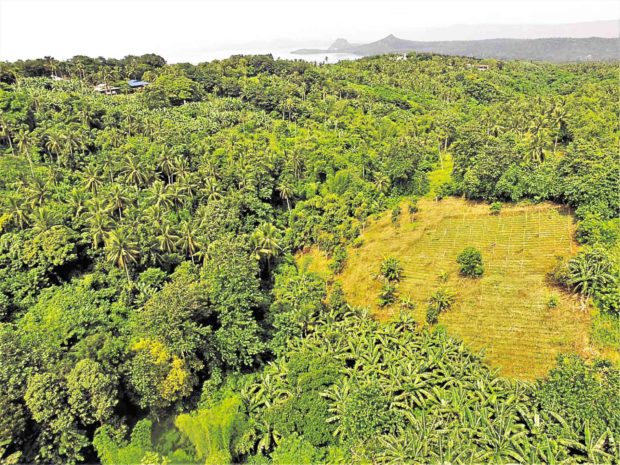Park featuring Asean trees, flowers to rise in Batangas

A section of this school property in Balete town in Batangas province will be turned into the Asean Unity Park. —CONTRIBUTED PHOTO
Singaporean orchids in Batangas province? Why not.
An almost 3-hectare property in Balete town in Batangas is being converted into what would be the country’s first Association of Southeast Asian Nations (Asean) Unity Park, a private school’s effort to raise global awareness among the youth.
The First Asia Institute of Techonology and Humanities (Faith) Colleges, the project proponent, aims to put together a botanic garden that showcases a variety of tree and plant species commonly found in the Southeast Asian region.
The park will soon rise on a 40-ha land where Faith Colleges, currently with a campus in Tanauan City also in Batangas, is also planning to put up its university. The land was donated by the family of Saturnino Belen, whose First Asia Venture Capital is a majority stakeholder of Faith Colleges.
Not easy
Article continues after this advertisementLawyer Gay Marie Francisco, First Asia Venture Capital vice president, said the school allotted P1 million to kickstart the project.
Article continues after this advertisementInitially, it is looking forward to growing the native narra, apitong and talisay trees, which Francisco said thrived in other parts of the region.
Citing more examples, she said they might even include Singaporean orchids or Malaysia’s national flower, Hibiscus rosa-sinensis.
The other Asean member states are Brunei Darussalam, Cambodia, Indonesia, Lao, Malaysia, Myanmar, Singapore, Thailand and Vietnam.
Francisco said the plan to introduce nonendemic plant species was not easy. This prompted school officials to consult experts in selecting which species would be grown locally but without harming the natural ecological balance.
‘Magnificent mix’
The Asean Unity Park was officially launched following the 31st Asean Summit held in Manila this month.
In her speech at the park’s Batangas launch, Department of Foreign Affairs (DFA) Assistant Secretary Ma. Hellen de la Vega described the park as something that would be a “magnificent mix of nature and aesthetics.”
According to De la Vega, the launch is timely because the Asean is celebrating its 50th founding anniversary this year, with the Philippines serving as Asean chair.
“We have a lot of common plant and tree species and the thought of this alone gives us a feeling of familiarity and togetherness with one another,” De la Vega said.
According to the DFA, Asean is home to 18 percent of the world’s plants and animals and has three of the 17 known “mega-diverse countries”—Indonesia, Malaysia and the Philippines.
“The Asean Unity Park is also practical as this will help awareness on the need to promote and protect our biodiversity and ecosystem amid a world that is highly urbanizing,” De la Vega said.
Francisco said they were targeting to open the park to the public in August next year.